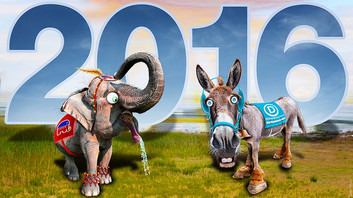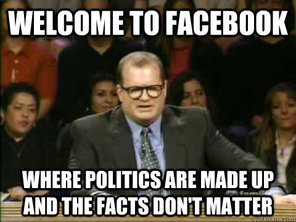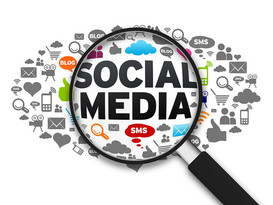 photo by DonkeyHotey via Flickr photo by DonkeyHotey via Flickr by Rachel Carly As a nation, we are entering an election year that is monumental. Although many negative things can be said about the debacle that is the 2016 Presidential elections, one potential positive among the wreckage is the public’s newfound engagement with politics. From signs littering the lawn of your neighbors to your distant cousin’s misinformed Facebook rant, the spread of opinion, policy, and (hopefully) fact is both accessible and widespread. People are keeping close eyes on both candidates, sharing news articles, conspiracy theories, and data to demonstrate a candidates worth or prove a candidates incompetence. While it is encouraging that so many people are taking interest in politics and the progression of society, where is this information coming from? And more importantly, does the public care?  After the first debate of Clinton vs. Trump I was mindlessly scrolling through my morning news feed. Picture of someone’s baby, picture of someone’s dinner, “Trump Threatens to Skip Remaining Debates if Hillary is There” – Whoa, hold on… I clicked on the link that my Facebook friend had shared. I was redirected to the New Yorker website, to a satire column called “The Borowitz Report,” and saw that the article in question was written by Andy Borowitz, a well-known comedian and satirist. I breathed a sigh of relief realizing that this article was, in fact, satire, and then the initial panic reignited when I realized that this Facebook friend, someone who I thought to be an informed, well-educated individual was sharing this satire article as fact. In this world of instant-gratification, unyielding access to information, and a growing need to connect we are facing new obstacles when it comes to research and facts. With one click of an “app” or scroll through a site we have access to a portal of unfiltered information. The power that goes along with that is as immense and awesome as it can be damaging. Although we are able to share media with family and friends around the world, we are also able to press an instantaneous “share” without checking sources or even reading the article. While we are able to connect with like-minded others and spread news in the present, we are also able to circulate information without considering ethical ramifications or responsibility. This mishandling of research and the blurred lines of facts is not limited to only the political season. Scare tactics, outdated material, and unattributed facts constantly circulate on Facebook feeds. I’m sure everyone has once been deceived by the posts that read, “WARNING: Facebook is becoming a public entity” which asks you to share the post repeatedly to keep your images private. And every summer at least one person shares the familiar picture of a shark fin peeking out of the water reading “Sharks spotted along the coast of Jersey Beaches!” Not remembering that this same picture has been shared last summer, and the one before that, and the one before that…  photo by Laura Pasquini via Flickr photo by Laura Pasquini via Flickr At its best, social media can be a wonderful platform to connect, learn, and unite. At its worst, social media is a vat of unattributed, unfiltered material that can dilute and damage information. We are becoming a society that cares about the quantity of news over the quality. Whether it is skewing the public’s perception of a politician or convincing you to stay home from this year’s summer vacation we are setting ourselves up to be too easily manipulated. Social media can often be likened to the childhood game of whisper-down-the-lane, where the first person says one thing which is modified in the transition to the next person and travels down a winding line of children until it comes out the other end an unrecognizable, confusing phrase. This was a silly, fun way to pass time and portray to children the issues with spreading rumors and secrets. However, we are no longer children and it is no longer silly and fun. It cannot be argued that social media is not a useful tool for pleasure, boredom, and connecting. I am an avid social media supporter and have seen the great power that it holds over us and the wonderful things that can be accomplished through its various uses. It is an important tool that, when used correctly, can be efficient and reliable. However, when it comes to research and the spread of information, social media is not, and should never be taken as, an authority. We did away with the card catalog, we digitized, and then we stopped doing research and let our misinformed, distant family members on Facebook do it for us. When it comes down to it, social media is a collection of sources and like all sources, it needs to be evaluated for its accuracy, currency, and purpose before being verified. Do not let your Facebook feed be your main source of information, do not let a 140-character tweet determine your vote or the direction of our country. The stakes are too high to be careless with research and our country is too important to be informed by satire.
0 Comments
Leave a Reply. |
Archives
July 2024
Categories
All
|
|
Glassworks is a publication of Rowan University's Master of Arts in Writing 260 Victoria Street • Glassboro, New Jersey 08028 [email protected] |
All Content on this Site (c) 2024 Glassworks
|

 RSS Feed
RSS Feed
